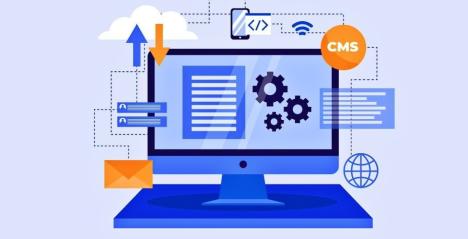Irrespective of the medium you choose for marketing your brand and its offerings, you would require engaging content to draw the audience in. We no longer live in a world where generic promotional messages help businesses get the desired traction. To create your niche in the market you operate in, it is important to focus on the content you create and publish on multiple platforms.
The competition keeps getting more intense across all major industries. With more and more organisations going digital, the Internet is stuffed with a plethora of businesses providing similar (if not the same) services.
In such an environment, the only way to stand out of the clutter is to win your audience over with quality content. The use of unique and engaging content helps you grab more eyeballs, convey your messages effectively, and persuade your prospects to engage with your business.
However, before you avail yourself of the best content marketing services, it is important to understand the concept of the content marketing funnel. It is never advisable to provide your target audience with the same type of content throughout their buying journeys.
The attention span of the audience is significantly lower and they have several alternatives at their disposal. This increases the need for a variety in the content created and published as you try converting a prospect into a customer.
What Is Content Marketing Funnel?
The content marketing funnel is a series of stages that dictate the type of content to be created and its intention as your prospects pass through different buying stages. In simple words, a content marketing funnel helps you create content suited for every stage of the journey your audience makes from being a prospect to a loyal customer.
From the moment you have identified your target audience until you have closed a deal and made a sale, you need to create unique content for different stages. This allows you to win over your audience and get the traction you desire.
The journey of content creation in the content marketing funnel can be divided into three major stages – awareness, evaluation, and conversion.
Stage 1: Awareness
This is the stage where the focus of your content marketing strategy should be on making your target audience aware of your brand and its offerings. While planning, creating and publishing content at this stage, it is always advisable to assume that your prospects have no idea about the products/services offered by your organisation.
Here, focus on spreading relevant information about your offerings and educating your audience about their benefits. This is certainly not the stage where persuasion is necessary. If you directly start persuading your audience to engage with your brand, your messages would come across as irrelevant. Instead, make sure that your prospects get to know about the brand and the products/services you provide.
Make sure you create engaging and shareable blogs and social media posts at this stage of your content marketing funnel. Use stimulating and quirky ways of letting your audience know about your brand. This would help you grab the attention of maximum prospects.
At this stage, it is advisable to use metrics like the number of views, time spent on your website/webpage, social media engagement, and bounce rates to measure the success of your content marketing strategy. This is the ideal stage where you can make necessary changes to your strategy. If you feel that your intended message is not reaching your prospects, you can pivot before it is too late.
Stage 2: Evaluation
This is the stage where the focus of your content marketing strategy should be to help your prospects evaluate their decision of engaging with your brand. By this time, your prospects know about your brand and are likely to engage with you if they are convinced.
Here, it is important to build trust with your existing and potential customers to make them buy your offerings. Your content should revolve around conveying the benefits of your products/services and why they are the best alternatives for your prospects in the market. This is the stage where you can focus on creating case studies, white papers, PR articles, and videos based on the specific needs and preferences of your prospects.
This is the stage where you will need to focus a lot on your competitors and their strategies. Just like you, all the players in the market are fighting for the attention of the audience and doing their best to build a relationship of trust. Make sure that your content is capable of reflecting the unique personality of your brand and increasing its recall value. Even if you are not able to convert your prospects, it is important to make them remember your brand for the days to come.
Stage 3: Conversion
The last stage of your content marketing funnel should focus on giving your prospects a reason to buy your offerings. By this time, members in the audience are aware of your brand and have evaluated their decision of engaging with the same. All they need is a little push that makes them buy your offerings and convert into loyal customers.
While you create content during this stage, it is always advisable to personalise the messages. Make your prospects feel as if they are the only ones catered to by your brand. This makes them feel special and increases their chances of engaging with your brand.
Although this is the last major stage of your content marketing funnel, it is important to note that your strategy should not end here. Once you have made a sale and closed a deal, make sure you keep in touch with your customers and provide them with follow-up content in the form of newsletters, brochures, blogs, videos, social media posts, feedback posts, and more.
The Final Word
Make sure you keep these aspects in mind while focusing on your content marketing funnel. Since the inception of marketing, the key to getting the desired traction and driving home the desired revenue has been the creation of quality content.










